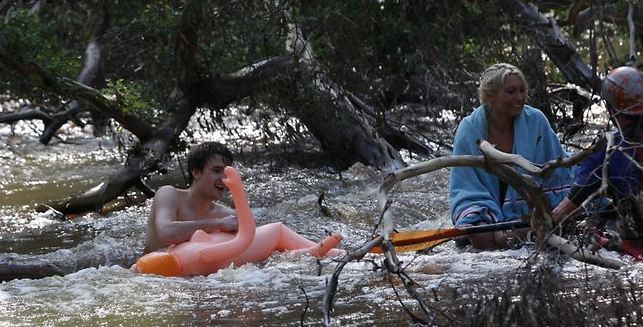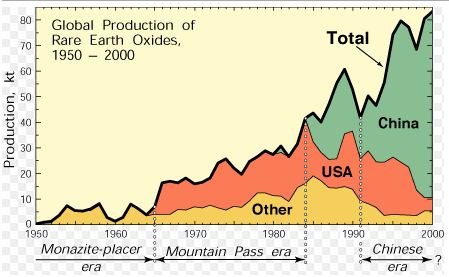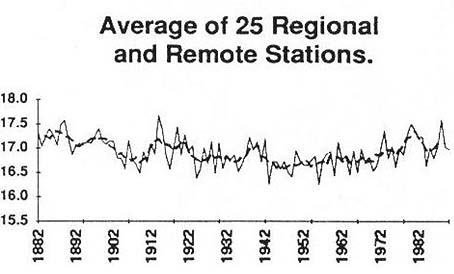Busy at work this morning, but had to stop to comment on the claim this morning from the legacy media that a survey by ‘leading universities’ (I guess as opposed to Australia’s other, less impressive universities) has found that as many as 50% of Australians are racists.
This survey was conducted for something called the ‘Challenging Racism Project.’
The claim that nearly 50% of Australians are racists is based on the fact that 48.6% of those surveyed had concerns about Islam, and the ability of Muslims to integrate successfully into Australian society.
But Islam is not a race. It is dishonest to claim that concerns about the willingness of a religious group to accept Australian law and values is racism.
If the owners of the Challenging Racism Project think these concerns are unfounded, then all they need to do is show that Muslims are no more prone to violence than other Australians, no more likely to commit crime, accept Australia’s laws and alliances (eg with Israel and the US), value women and women’s testimony as highly as mens, tolerate homosexuals, etc.
Oh. Problem?
When influential Islamic groups like the Muslim Brotherhood have a strategy for turning Western democracies into islamic states ruled by sharia law, when a teacher can be brutally attacked on the streets of London for teaching a religious studies class, when islamic schools teach their students that Jews are pigs and monkeys, that Hindus have no intellect and drink cow’s piss, and that disbelievers are the worst of all people, when islamic leaders openly call for the destruction of Israel and anyone who supports it, and for the death of those who disagree with them, then yes, there is a problem.
It isn’t racist to acknowledge this.
Study co-author Dr Yin Paradies, from the University of Melbourne, said racism against minorities was most common in areas that were more highly populated by those minorities.
People who live in areas with high levels of some ethnic or religious groups are more concerned about the behaviour of some members of those groups than people who live in the leafy suburbs of Melbourne. People who know these groups and see them day to day are concerned. People who don’t are not. If prejudice is judging things you don’t know about, who is it who is prejudiced here?
I am not suggesting every concern is justified. But the way forward is not to condemn, but to respect those who have concerns enough to listen, and then either to acknowledge the concerns as justified and work towards a way to resolve them, or to explain carefully and reasonably why the concerns are not justified.
The study showed a darker layer often lies beneath people’s stated support for multiculturalism: while most supported cultural diversity, 24.1 per cent believed diversity could be equated with a ”weak nation”.
I am not sure why the belief that diversity of religious and political views could tend to weaken a nation should be considered evidence of a ‘darker side.’ That view is held unequivocally in most muslim countries. For example: Maldives is a self governed republic and very homogenous society, with one race, one language and one religion. This makes Maldives very peaceful community in terms of domestic violence and cultural problems.
It is not self-evidently true that a country whose citizens have many conflicting views about values, religion, political systems and alliances will be stronger than one whose citizens are in general agreement about those things. I am happy to be convinced. But I won’t be convinced by being called a racist.
Update
One thing I forgot to note. The ‘Challenging Racism Project’ reported on differences in alleged racism between states. It did not report on differences in racism and anti-semitism between various religious and cultural groups.
Data is offered on anti-semitism and genuine racism as if that racism were the exclusive property of white Australians. ‘Challenging Racism’ says it is worried about Australian attitudes to ethnic groups, and to one religious group in particular.
A major factor in the concerns of many Australians about that religious group is that it is intolerant – of other religions and of particular races.
I wonder whether the survey data show that this concern is justified – that there are high rates of anti-semitism, for example, amongst members of that religious group.
In other words, most Australians are worried about that group for the same reasons that Challenging Racism says it is worried about most Australians.
I note in passing that it is the European nations, along with the USA, Australia, Canada and New Zealand, which have been most welcoming of migrants of diverse backgrounds, and most careful to ensure that migrants are treated as equals, regardless of race or creed. And it is those nations, the ones that have shown the least institutional racism of any on earth, which are most commonly accused of being racist.
So I can’t help but wonder what is the real agenda behind those accusations.
Who benefits from them?







